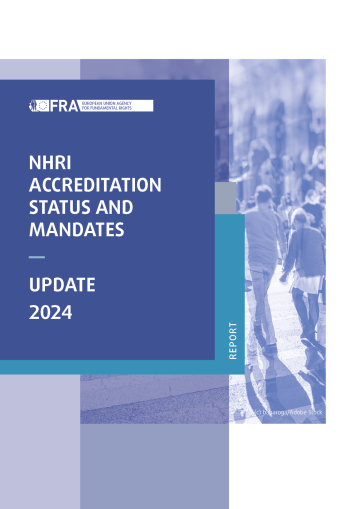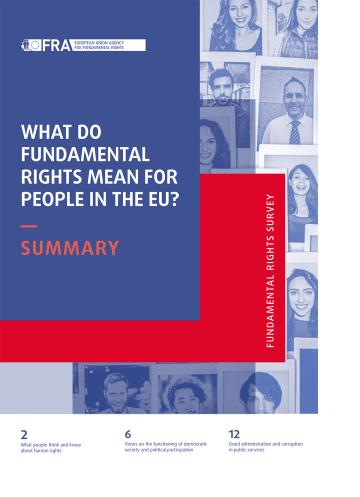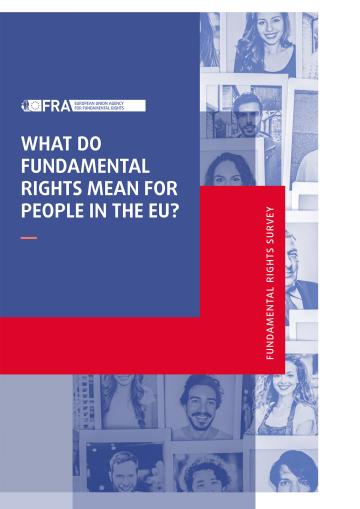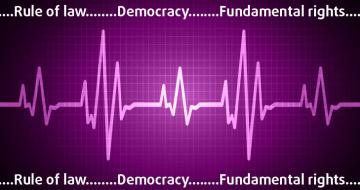
EU funds: Ensuring compliance with fundamental rights
Search inside this publication
- Foreword
- Key findings and FRA opinions
- Introduction
- 1. Participation
-
2. Capacity
- 2.1 Capacity and resources of civil society to monitor
- 2.2 Capacity and resources of independent fundamental rights bodies to monitor
- 2.3 Fundamental rights awareness and expertise of officials in administration
- 2.4 Capacity of project implementers
- 2.5 Importance of training
- 2.6 Tools and guidance for managing authorities and beneficiaries
- 2.7 Contact points for issues related to the Charter and the CRPD
- 3. Complaints and monitoring
- Conclusion
- Annex: Methodology
- Abbreviations and acronyms
- About this publication
It is of the utmost importance that every euro of EU money is spent in a way that respects fundamental rights. Billions of euros are spent each year on creating jobs, economic growth and sustainable development, all of which make a tremendous positive difference to people’s lives.
However, situations arise in which EU funds are used in ways that neglect or even violate fundamental rights. Take an example: a funding programme is spent on an education initiative that leads to segregated schooling for Roma children. But fundamental rights, as enshrined in the EU Charter of Fundamental Rights, stand for inclusion and equality; excluding a vulnerable population at risk is therefore absolutely at odds with the common values on which the EU is built. In another example, funding may be used to house people with disabilities in institutional care, unfit for their needs. This clearly does not support them in realising their right to live independently in the community.
To prevent funds from being spent in ways that undermine or directly violate people’s fundamental rights, the EU introduced new requirements for funds in 2021. The new safeguards have great potential and could be a game changer in securing rights across Europe.
Putting in place conditions in respect of EU funding has gained a great deal of attention in recent years, especially, for instances, when breaches of the rule of law have led to the withholding of funds.
Fundamental rights can and should be a lived reality for everyone in the EU today. These safeguards in EU funds are a step towards achieving this. This report looks at the role played by funds conditionality in protecting and promoting rights under the EU Charter of Fundamental Rights and the United Nations Convention on the Rights of Persons with Disabilities.
The report also explores the potentially invaluable role of national human rights institutions, ombudsperson institutions and equality bodies in holding Member States accountable when fundamental rights are not upheld.
Living up to this great potential requires a truly collective effort. The European Commission, EU Member States and independent fundamental rights bodies all have a part to play. Acting now, we can establish full respect for fundamental rights in all operations funded by the EU. Acting now, we can make a significant shift in protecting and promoting our most precious rights.
Michael O’Flaherty
Director













